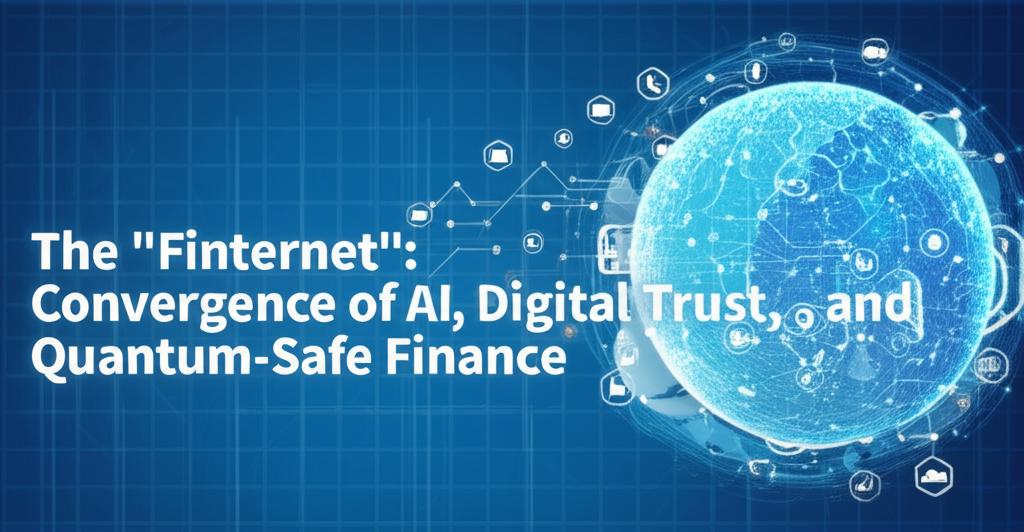The financial world is on the cusp of a significant transformation, driven by the powerful convergence of Artificial Intelligence (AI), robust digital trust frameworks, and the advent of quantum-safe financial systems. This evolving landscape, often dubbed the "Finternet," promises a future where financial interactions are more efficient, personalized, and secure.
At the heart of this revolution is Artificial Intelligence. AI is rapidly becoming the "brain" of tomorrow's financial system, automating processes, enhancing customer experiences, and improving decision-making. Financial institutions are increasingly leveraging AI for a multitude of applications, including advanced fraud detection, personalized customer support through AI-driven chatbots, and predictive analytics for investment strategies and risk assessment. The ability of AI to process and analyze vast amounts of data in real-time is unlocking new efficiencies and insights that were previously unattainable. This includes everything from streamlining loan processing and automating compliance checks to providing more accurate credit scoring and identifying new market opportunities.
However, the increasing reliance on digital systems and AI also amplifies the need for robust digital trust. Trust is the bedrock of any financial system, and in the digital age, this means ensuring the security, privacy, and reliability of digital interactions and platforms. Technologies like sophisticated biometric authentication, behavioral monitoring, and AI-powered tools to detect deepfakes and other forms of digital fraud are becoming crucial. Furthermore, there's a growing emphasis on self-sovereign identity (SSI) and self-custody solutions, which empower users with greater control over their data and assets. Establishing holistic digital trust frameworks, supported by global standards and secure, user-centric approaches, is paramount to fostering confidence in the Finternet.
Looming on the horizon is the transformative, yet potentially disruptive, power of quantum computing. While quantum computers offer the potential to solve complex financial problems currently intractable for even the most powerful supercomputers – such as advanced risk modeling and trade optimization – they also pose a significant threat to existing cybersecurity measures. Specifically, quantum computers could break many of the encryption algorithms currently used to secure financial data and digital trust.
This necessitates an urgent transition to quantum-safe finance. The development and implementation of post-quantum cryptography (PQC) is becoming a strategic imperative for the financial industry. PQC aims to create new cryptographic standards that can withstand attacks from quantum computers, ensuring the long-term confidentiality and integrity of sensitive financial information and transactions. Governments and industry bodies, like the National Institute of Standards and Technology (NIST) in the U.S., are actively working on standardizing and promoting the adoption of these quantum-resistant algorithms. Financial institutions are beginning to assess their cryptographic vulnerabilities and plan their migration to quantum-safe solutions, a move critical for maintaining security and trust in the quantum era. Some are already piloting quantum-safe technologies for applications like tokenized assets.
The convergence of AI, digital trust, and quantum-safe finance is not merely about adopting new technologies in isolation. It's about their synergistic interplay. AI can enhance the effectiveness of digital trust mechanisms and help in the complex transition to quantum-safe cryptography. Robust digital trust frameworks are essential for the ethical and widespread adoption of AI in finance. And quantum-safe finance will provide the secure foundation upon which the future AI-driven, trust-based financial ecosystem can be built.
This journey towards the Finternet requires proactive collaboration between public authorities, financial institutions, and technology innovators. While the path forward involves navigating challenges related to regulation, interoperability, and the sheer complexity of these technological shifts, the promise is a financial system that is more inclusive, resilient, and responsive to the needs of individuals and businesses globally.

